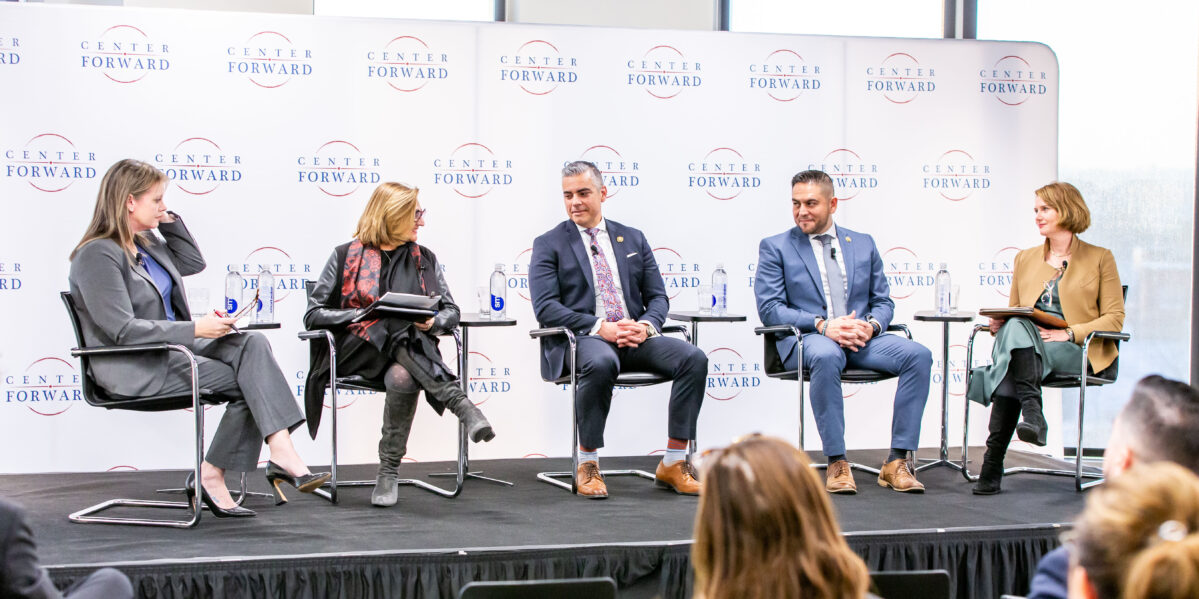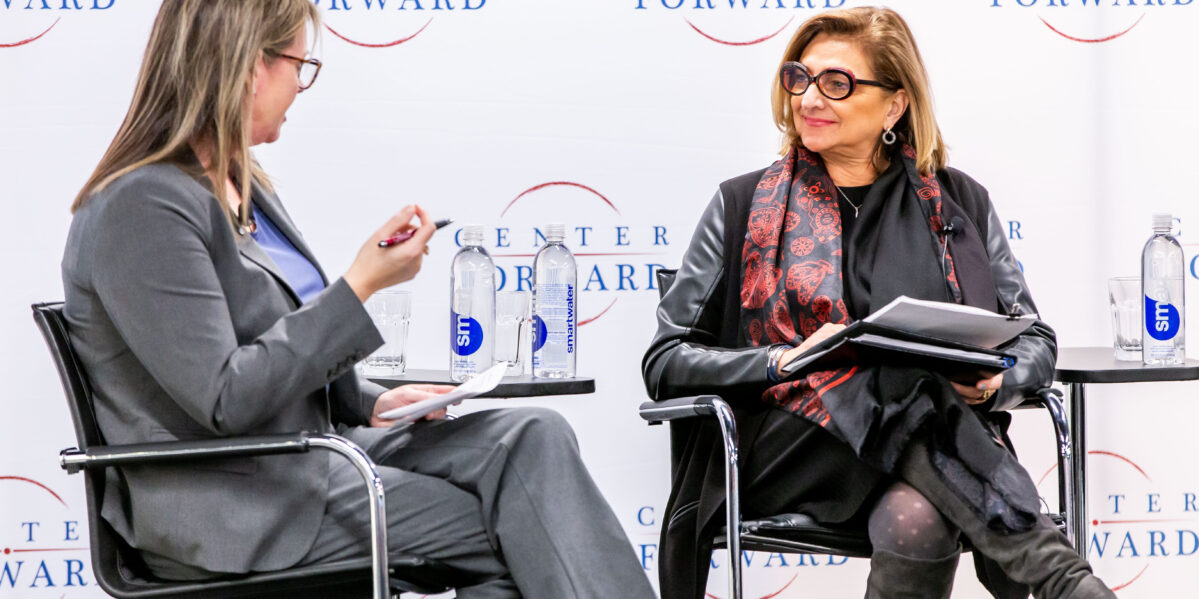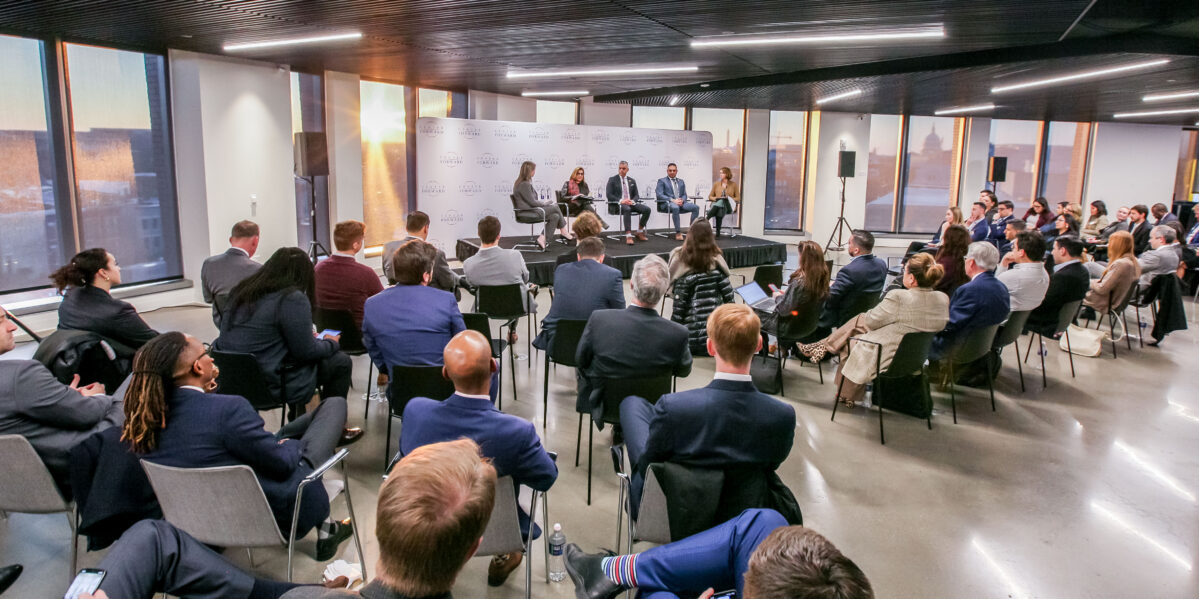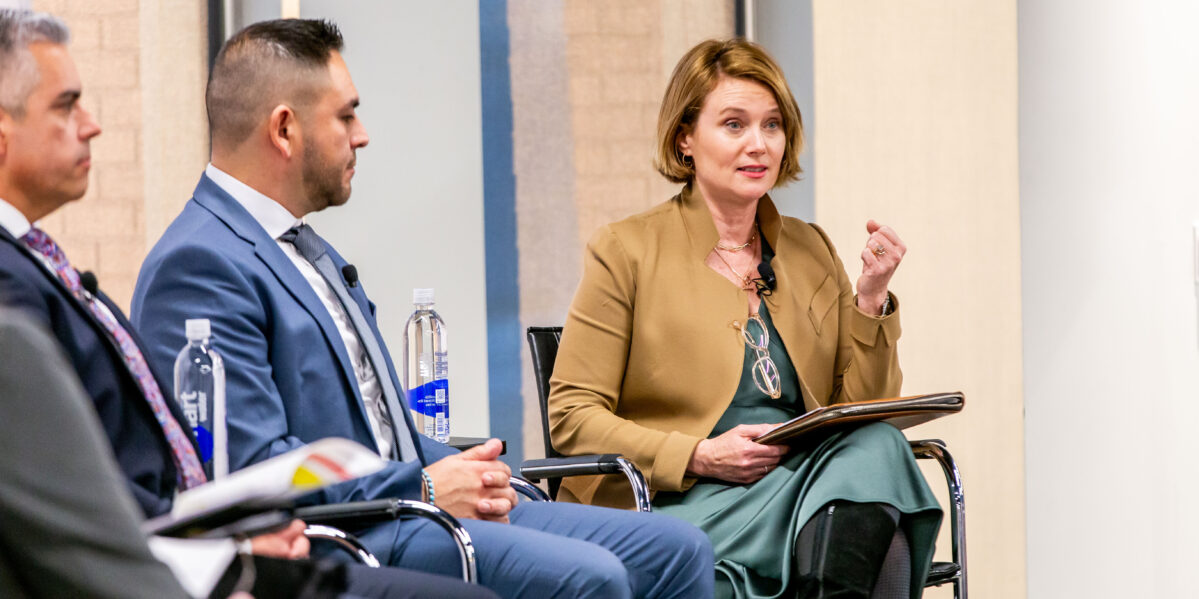News

Ciscomani and Vasquez Champion Bipartisanship in Shaping Economic Relations with Mexico
CF in the News
Published on February 21, 2024
Congressional Leaders, Mexican Embassy, and Business Community Join Forces for Productive Dialogue with Center Forward on USMCA and Bilateral Trade
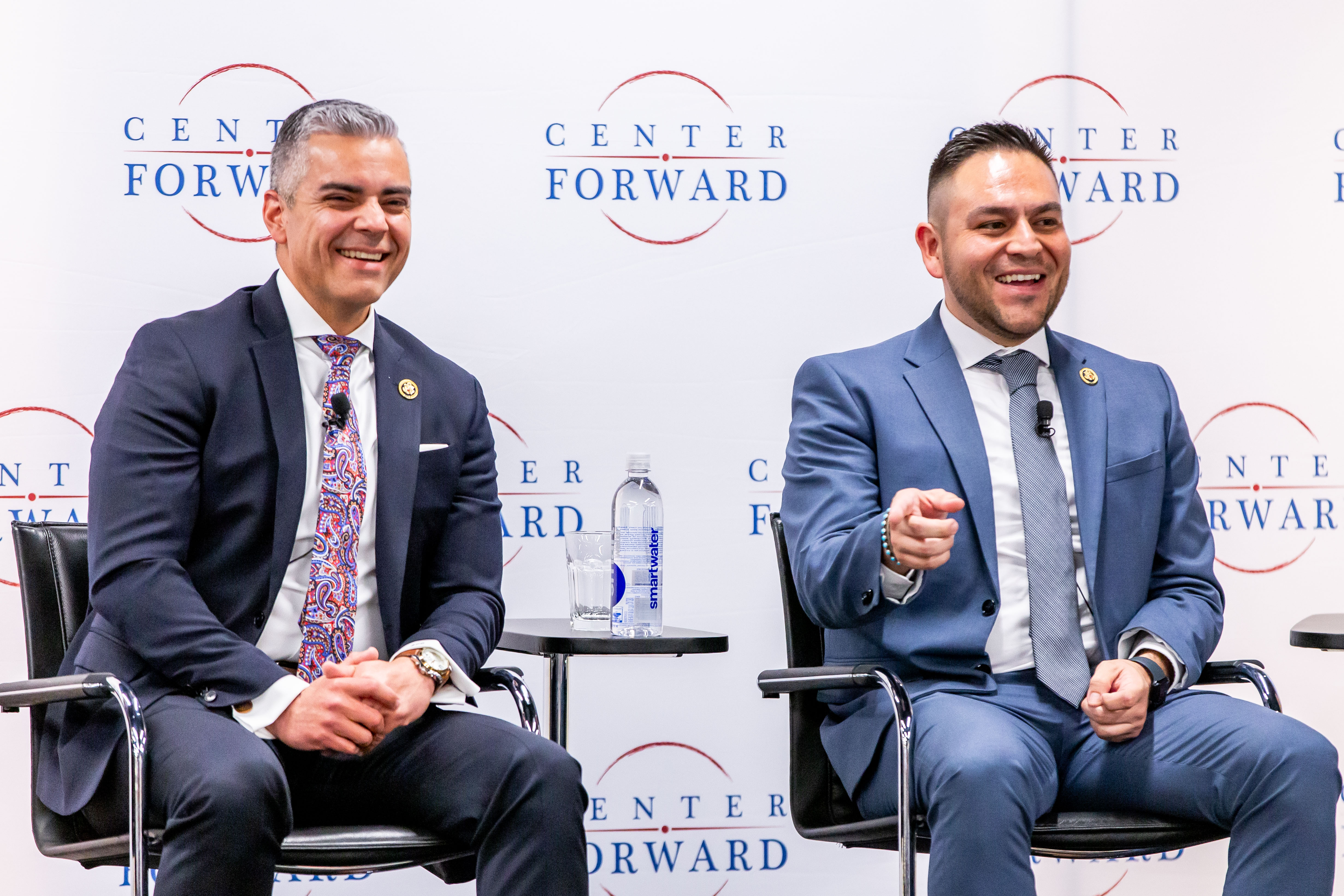
(L to R) Rep. Juan Ciscomani (R-AZ) and Rep. Gabe Vasquez (D-NM)
In 2023, Mexico was the leading source of goods imported to the United States — ahead of China for the first time in more than twenty years. Mexico surpassing China as America’s top trade partner signals a significant shift in global commerce dynamics, particularly for the two North American nations.
On the heels of this news, Center Forward convened a discussion on the United States-Mexico-Canada Agreement (USMCA) and trade relations between the U.S. and Mexico. The event featured Ambassador Ana Luisa Flores Fajer, Congressman Juan Ciscomani (R-AZ), Congressman Gabe Vasquez (D-NM), and Jennifer Thornton from Business Roundtable.
Ambassador Ana Luisa Flores Fajer, the Deputy Chief of Mission for the Embassy of Mexico, emphasized the benefits of North America banding together as an economic bloc, but said that the collaboration does not come without its challenges.
“Through USMCA, Mexico, the US, and Canada have created one of the most robust trading partnerships in the world. However, we face unprecedented tectonic geopolitical shifts that will require us to decide who we are as neighbors and as a region to ensure our global competitiveness and economic security,” said Ambassador Flores Fajer. “Mexico is open to the world, but we have only one economic alliance, and that is with the United States.”
Congressman Juan Ciscomani shared his insights on the local impacts of international trade policies. Prior to serving in Congress, Rep. Ciscomani was Vice-Chair of the Arizona-Mexico Commission, a cross-border nonprofit organization focused on improving economic prosperity through strong, public/private collaborations. Reflecting on the connections between trade and economic opportunity, he highlighted the challenges and opportunities facing border communities and advocated for continued bipartisan work to promote economic growth.
Photos from the Center Forward Panel Discussion:
“With Mexico recently rising to our top trade partner in the world, it’s crucial for Congress to examine ways to strengthen ties and commerce between our countries,” said Ciscomani. “That is why participating in bipartisan conversations like this with Rep. Vasquez, the Embassy of Mexico, and Center Forward is so important as it leads to tangible policy solutions that unite both sides of the aisle.”
Congressman Gabe Vasquez, whose district includes one of the largest land borders of any congressional district in the country, shared his insights on the unique culture of and possibilities for border communities. He emphasized the need for investments in infrastructure on both sides of the U.S.-Mexico border in order for goods and services to be able to successfully flow from one country to the other.
Rep. Vasquez and Rep. Ciscomani have teamed up on a number of projects since joining Congress in 2021, including launching the Bipartisan Southwest Caucus, which advocates for economic development, international trade and border security and the conservation of public lands.
Jennifer Thornton rounded out the panel, highlighting the successes of the USMCA, as well as areas where the agreement could be improved. USCMA is up for a joint review in 2026, and all three countries involved will have an opportunity to offer their thoughts on potential refinements to the agreement. Thornton also offered insights on how the agreement affects the region’s competitiveness vis-a-vis China. All four panelists agreed that by operating as a North American bloc, the region can advance shared goals and remain dominant on the world stage.
Center Forward, the leading convener of bipartisan conversations on Capitol Hill, organized the event as part of its Embassy Row series. This series is dedicated to exploring trade, innovation, and U.S. economic partnerships abroad, reflecting the organization’s commitment to facilitating informed discussions that transcend both political and international boundaries.
